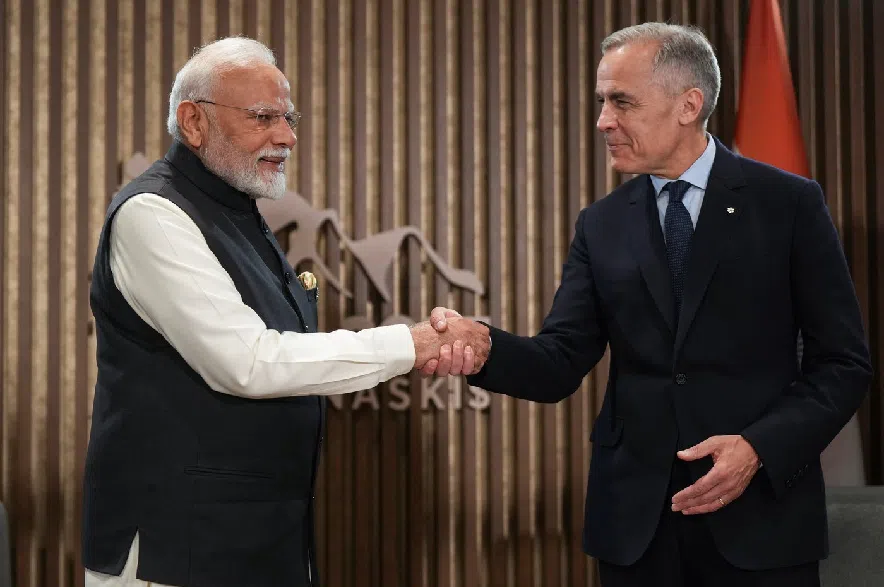As Saskatchewan Premier Scott Moe is planning a trade mission to China, Evan Bray spoke to Murad Al-Katib, president and CEO of AGT Foods Canada, about the impact of tariffs and trade.
AGT says on its website it has more than 12 facilities across Western Canada for value-added processing of pulses, grains, oilseeds and canary seed.
Listen to Murad Al-Katib on The Evan Bray Show:
Read more:
- Sask. government appeals to feds after farm equipment hit by tariffs
- Farmers call govt to take action against Chinese canola tariffs
- Premier Scott Moe announces road upgrade to support Sask. canola crush facility
Al-Katib said Prime Minister Mark Carney recent decision to drop many of its retaliatory tariffs on American products was a good one.
“We have to recognize that the only two nations in the world that had retaliatory tariffs on the U.S. system were China and Canada. When I look at the severity of the target on China by the U.S., I don’t think that that’s the company we want to be in,” he said.
“Those who are feeling that we don’t have our elbows up enough don’t recognize that this is not likely an elbows-up deal
“I definitely applaud the action, I think it’s necessary, and I think it’s going to get us to a deal in the very near future.”
According to Carney, the move was made to ease tensions with the Americans and make finding a deal at the negotiating table easier. Canada-U.S. Trade Minister Dominic LeBlanc also stated that the retaliatory tariffs were a major sticking point in U.S.-Canada negotiations.
As trade negotiations with the U.S continue, many producers and business owners are left dealing with tariffs.
Al-Katib says it’s not just the financial impact causing issues, it’s also the uncertainty.
“Imagine if you’re buying a vessel of lentils today, and that vessel of lentils would be somewhere around $10 million, and you don’t know whether you’re going to face a 20 per cent tariff when it arrives, so there’s $2 million at play just in taxes on the product that you’re going to buy, what do you do? You don’t buy it, or you buy just enough to get you through,” said Al-Katib.
He said that while countries like China, India, and the United States are valuable trade partners, it’s important to diversify.
“You cannot ignore the girth of China, India, and the United States — they’re necessary markets, just because of the sheer GDP and the population of each country,” he said.
“I’m not suggesting we should trade less with the United States or China, I’m suggesting we should trade a lot more with India.”
Al-Katib said it is not about getting away from the three giants, it’s about ensuring Canada develops other markets.
“My biggest fear is that we’ll get complacent again and we’ll just get a deal and we’ll go back to doing the same thing until the next president hits us over the head again.”
— with files by Roman Hayter
Read more:











